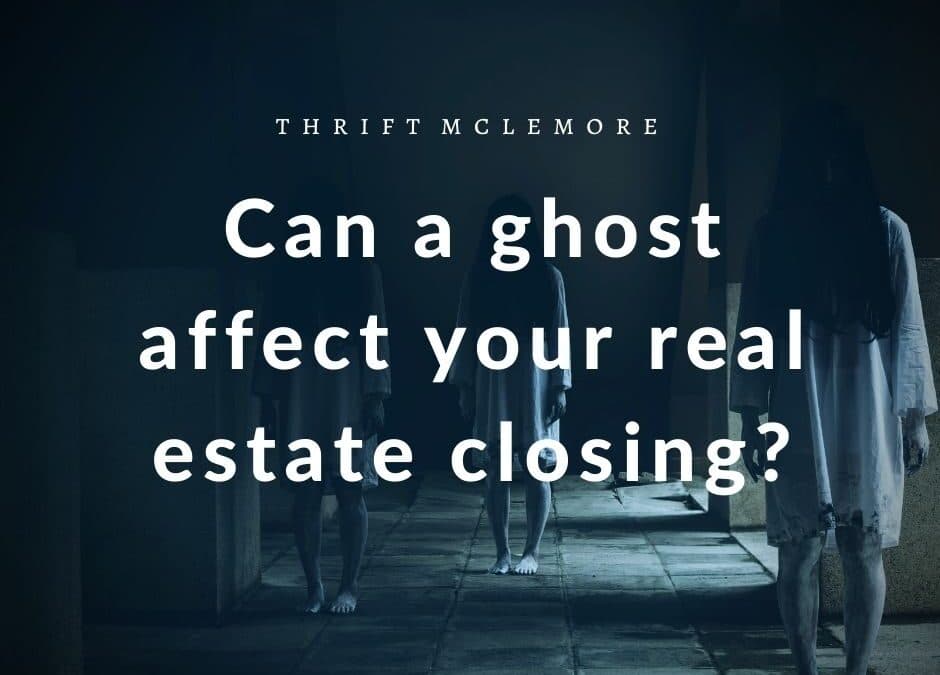
Can a ghost affect your real estate closing? In an interesting case from New York, Stambovsky v. Ackley, the answer was yes!
In that case, the Plaintiff, Stambovsky, was horrified to discover the house he had recently contracted to buy was “widely reputed to be possessed by poltergeists, reportedly seen by defendant seller and members of her family on numerous occasions over the last nine years.”[1]
The Defendant, Ackley, had shared her home’s ghostly history on walking tours of the town, in the local newspaper, and even in Readers Digest. But she never shared this information with the buyer. Once the buyer was made aware of the local “folklore of the [v]illage,” he sought to rescind the contract of sale and attempted to recover his down payment.[2]
The court, although highly amused (at one point, even asking, “who you gonna’ call?”) took the case seriously. It held that “[w]here, as here, the seller not only takes unfair advantage of the buyer’s ignorance but has created and perpetuated a condition about which he is unlikely to even inquire, enforcement of the contract (in whole or in part) is offensive to the court’s sense of equity…rescission [of the contract]… is entirely appropriate to relieve the unwitting purchaser from the consequences of a most unnatural bargain.”[3]
Does this case mean you need to disclose every ghost, goblin, poltergeist, premonition, demon, or spirit ever seen on your property? Probably not. However, if you hold your property out to the public as being “haunted,” you may want to tell your buyer depending on your state.
But all states differ on whether this something that needs to be disclosed. If you are looking to sell your haunted house in Georgia or Florida or if you have an issue with a real estate transaction or contract, contact a knowledgeable Georgia real estate law attorney.
You may also like: Recourse for Georgia New Construction Defects
[1] Stambovsky v. Ackley, 572 N.Y.S.2d 672, 674 (1991).
[2] Id.
[3] Id. at 677.

